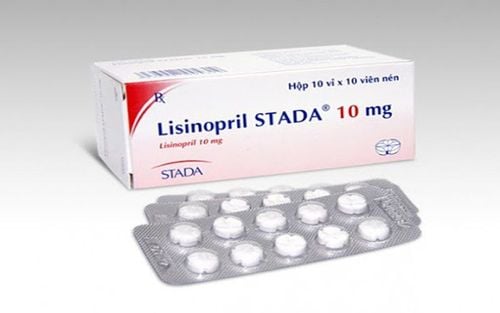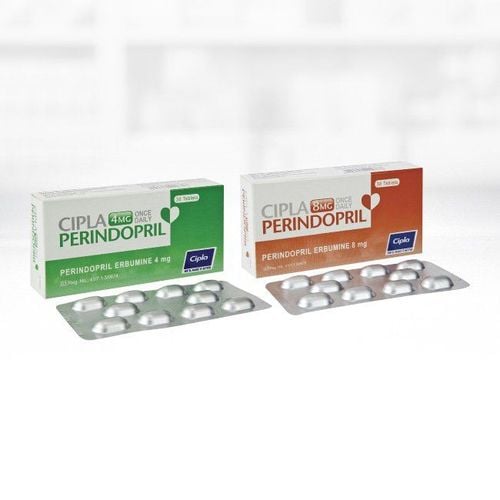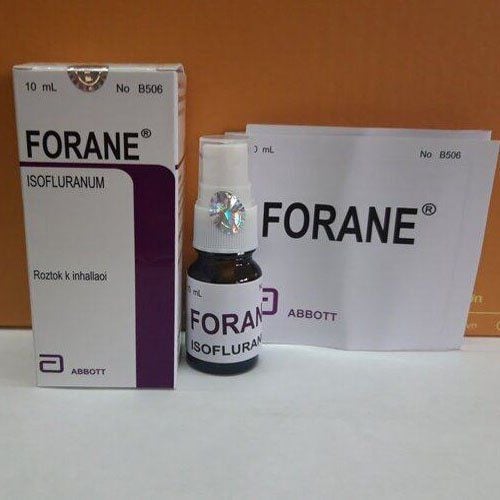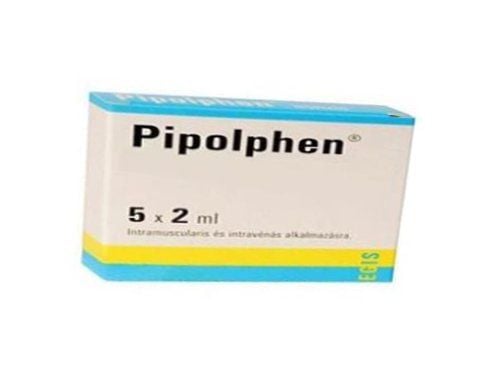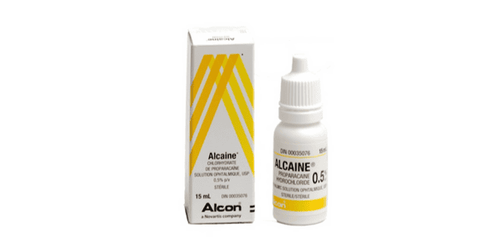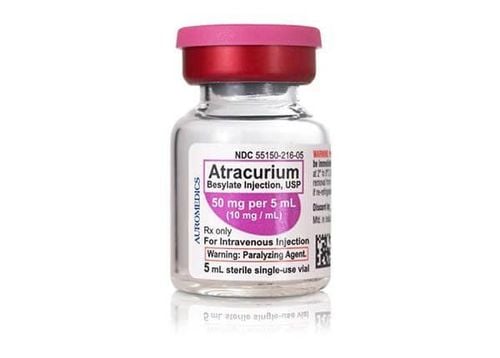This is an automatically translated article.
Accucaine is an anesthetic drug that is indicated in some cases. The drug is prepared in the form of an injectable solution, so it should only be used under indications and administered by medical personnel.1. What are the effects of Accucaine?
The active ingredient of Accucaine is Lidocaine hydrochloride, which is prepared in the form of an injection solution. Lidocaine is a local anesthetic of the amide group, lidocaine has a medium duration of action. Local anesthetics block both the generation and conduction of nerve impulses, by reducing the permeability of nerve cell membranes to sodium ions, thereby stabilizing the cell membrane and inhibiting neuronal cell proliferation. depolarization, resulting in reduced propagation of action potentials and subsequent blocking of nerve impulse conduction.Use of lidocaine in antiarrhythmic cases: Lidocaine is also an antiarrhythmic drug thanks to its Na+ channel blocking effect, used intravenously to treat ventricular arrhythmias. Lidocaine reduces the risk of ventricular fibrillation in patients with suspected myocardial infarction. However, patient survival is not increased, but may be reduced, and should be avoided in patients at risk of heart block, or congestive heart failure. Therefore, lidocaine should not be routinely used to treat all patients, unless a complete diagnosis is made.
Indications of Accucaine in the following cases:
Indicated for local or regional anesthesia by invasive techniques such as percutaneous injection for examination, endoscopic examination, and placement of technical equipment. For regional anesthesia with peripheral nerve blockade techniques such as brachial and intercostal plexuses. To help relieve pain in diseases such as neuritis, neuralgia. Epidural anesthesia, sacral anesthesia, spinal anesthesia. Treatment of ventricular arrhythmias after myocardial infarction or during cardiac engineering procedures such as cardiac surgery or cardiac catheterization. Lidocaine is a drug of choice for the treatment of ventricular extrasystoles in myocardial infarction, treatment of ventricular tachycardia and ventricular fibrillation.
2. When should Accucaine not be used?
Do not use Accucaine in the following cases:
Hypersensitivity to the ingredients of the drug or hypersensitivity to the anesthetic of the amide group. Patients with Adams-Stokes syndrome There is a severe disorder of the sinoatrial node conduction. Atrioventricular block of all degrees, severe myocardial failure, or intraventricular block (in the absence of a pacemaker). Porphyrin metabolism disorders.
3. How to use and dosage of Accucain
The drug is used by injection, depending on the case, there are different treatment measures.
Dosage and administration:
Anesthesia: Accucaine dose is 4.5 mg/kg. When adding adrenaline, the dose can be up to 7 mg/kg.
Anesthesia layer: Inject directly into the tissue, from the outside to the inside. Regional block anesthesia: Injected under the skin. Nerve Blocking Anesthesia: Injection of lidocaine solution into or near the nerve or peripheral nerve plexus has a broader anesthetic effect than the techniques described above. Acute treatment of ventricular arrhythmias: use a dose of 3 - 4 mg/kg divided into 3 times, within 20 - 30 minutes, that is, once every 7-8 minutes; After that, steady-state plasma concentrations can be maintained by infusion of 1 to 4 mg/min.
Note: In heart failure and liver disease, the total initial dose must be reduced and the infusion rate reduced to maintain and it is necessary to regularly measure the plasma lidocaine concentration, to ensure that it is within the prescribed range to reduce reduce drug toxicity.
4. Undesirable effects when using Accucaine
In addition to the therapeutic effect, due to the effect of blocking conduction in axons in the peripheral nervous system, anesthetics can affect the function of organs that need to be operated by impulse conduction. Some possible side effects include:
Common side effects include low blood pressure, headache when changing positions, chills. Less common side effects: ventricular block, arrhythmia, cardiovascular collapse, cardiac arrest; Shortness of breath, impaired or stopped breathing; drowsiness, coma, agitation, slurred speech, seizures, anxiety, hallucinations; itching, skin rash, skin edema, numbness around the lips and tip of the tongue, nausea and vomiting; paresthesias such as numbness, ant bites; blurred vision, vision. Some ways to manage side effects:
Respiratory failure, dyspnea: Maintain ventilation, give 100% oxygen, and perform respiratory support when needed. In some seriously ill patients, endotracheal intubation may be necessary. For circulatory failure, cardiovascular collapse: Use some vasopressors and intravenous fluids. Seizures: Give some anticonvulsants benzodiazepines; It should be noted that intravenous benzodiazepines can cause respiratory and circulatory depression, especially when given rapidly.
5. Notes when using Accucaine
Some notes when using Accucin:
When using it, it should be used with caution in people with liver disease, heart failure, severe hypoxia, severe respiratory failure, hypovolemia or shock, incomplete heart block or heartbeat slowness, atrial fibrillation, weakness. Do not inject lidocaine into inflamed or infected tissues, do not give the drug into the injured urethra because in such conditions, the drug will be rapidly absorbed and cause systemic reactions instead of local reactions. place. Pregnancy: Lidocaine has been used extensively in surgeries for pregnant women with no reported adverse effects on the mother or fetus. Lactation: Lidocaine is distributed in breast milk in very small amounts, so there is almost no risk of harmful effects to the nursing infant. However, care should be taken when using it. Possible drug interactions:
Adrenalin: combination with lidocaine may reduce the rate of absorption and toxicity, thereby prolonging the duration of action of lidocaine. Beta-blockers: Concomitant use with lidocaine may slow the body's metabolism of lidocaine by reducing hepatic blood flow, leading to an increased risk of lidocaine toxicity. Cimetidine: This drug can inhibit the metabolism of lidocaine in the liver and it also leads to an increased risk of lidocaine toxicity. Sucinylcholine: Concomitant use with lidocaine may increase the effect of succinylcholine. Lidocaine, either systemic or injected as a local anesthetic, can cause overdose and be toxic to the body. Because Lidocaine has a very narrow therapeutic index, severe toxicity can occur with doses only slightly above the therapeutic dose. Symptoms of overdose include drowsiness, confusion, coma, convulsions, respiratory and cardiac arrest, atrioventricular block, etc., treatment of overdose is only supportive with usual measures to relieve symptoms. hazardous. Accucaine is a widely used drug and an alternative to some other anesthetics. This is a medication to be used under the direction and administered by medical personnel. You must not arbitrarily buy and use to avoid the risk of toxicity to the body.
Please dial HOTLINE for more information or register for an appointment HERE. Download MyVinmec app to make appointments faster and to manage your bookings easily.
Reference source: drugs.com



